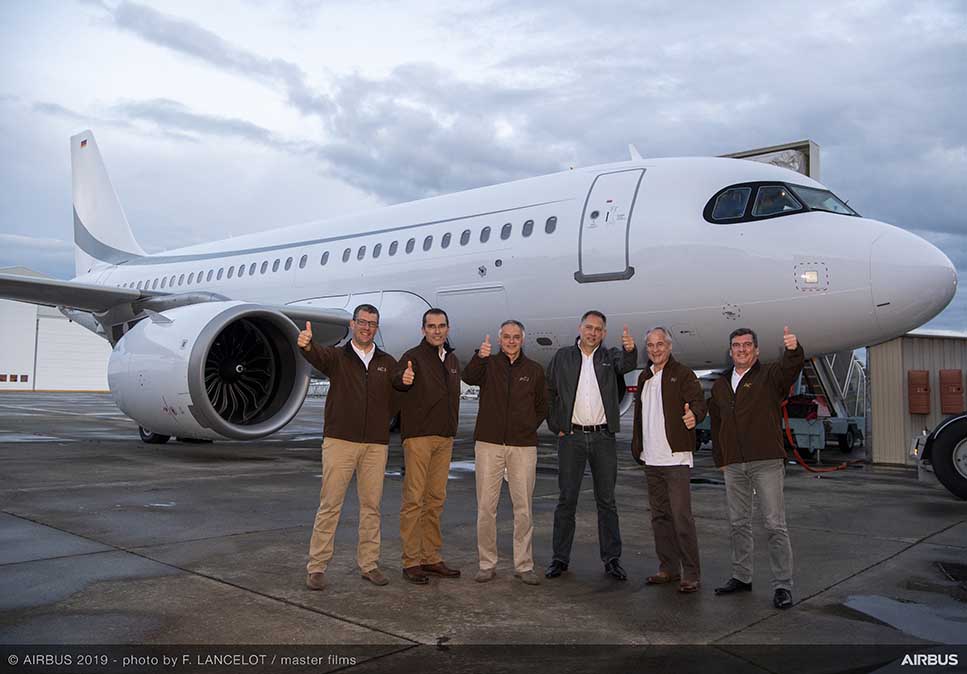Airbus corporate jet sets new endurance record
30 April, 2019
2 min read
By joining our newsletter, you agree to our Privacy Policy


Airbus has set a new endurance record for an A320neo family aircraft with an Airbus crew after an ACJ319neo successfully flew for 16 hours and 10 minutes on an April 25 test flight.
The aircraft flew a return flight from Airbus headquarters in Toulouse, France, to Greenland while conducting a diversion under 180-minute extended-range twin-engine operations (ETOPS) rules.
The ACJ319neo is fitted with five additional center tanks in its cargo hold to give it the extra range and is powered by new, more efficient engines.
Other refinements include efficiency-boosting wing-tip "Sharklets" and a lower cabin altitude for greater passenger comfort.
READ: Innovative new aircraft designed to fly indefinitely.
The test plane is due to be delivered to Germany’s K5 Aviation after flight trials are completed and the company’s chief executive and chief pilot, Erik Scheidt, was on board for the test flight.
“We want to fly customers to their destination using the quickest routes, as well as delivering unsurpassed comfort and service, and it’s impressive to see such long-range capability at first hand,” Scheidt said.
The A319neo is the smallest member of the A320neo family and is particularly suited to challenging and remote airports.
The corporate version of the A319 is designed to fly eight VIP passengers 6,750nm.
Corporate jet orders and commitments for A320neo family-derived aircraft now total 14.
About 200 Airbus corporate jets are in service worldwide, flying on every continent, including Antarctica.
The last variant of the A320 neo family, an A319neo powered by a Pratt & Whitney Geared turbofan (GTF) took its maiden flight on April 25.
It will perform an extensive flight test campaign with the aim of achieving certification in the fourth quarter of this year.
The A319neo with CFM Leap-1A engines was certified by the US Federal Aviation Administration and European Union Aviation Safety Agency in December, 2018, after an intensive flight test program of more than 500 hours.
Get the latest news and updates straight to your inbox
No spam, no hassle, no fuss, just airline news direct to you.
By joining our newsletter, you agree to our Privacy Policy
Find us on social media
Comments
No comments yet, be the first to write one.

